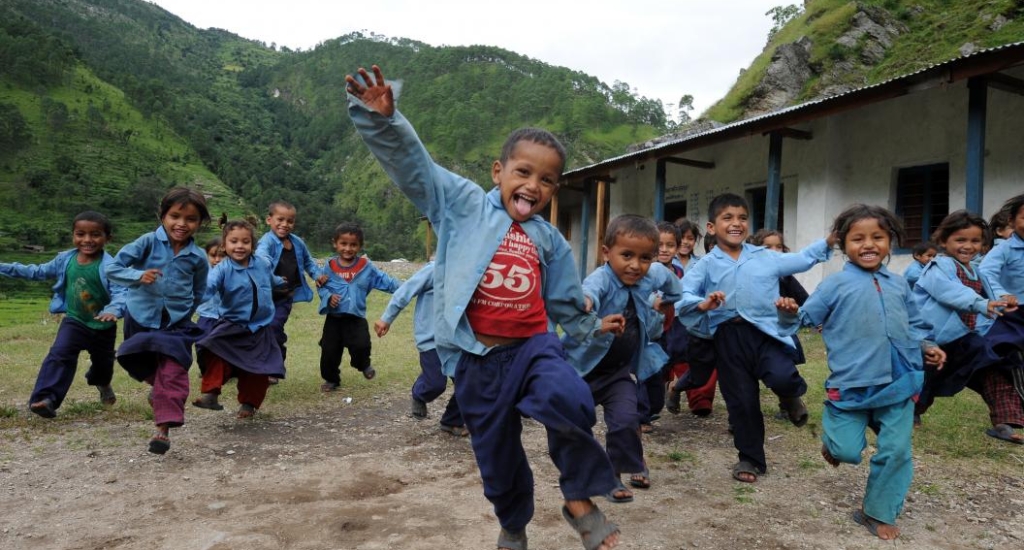Guided by the Convention on the Rights of the Child (CRC), UNICEF advocates and works for the protection of children's rights, to help the young meet their basic needs and to expand their opportunities to reach their full potential. Partnerships with governments, UN organisations, other development partners and civil society, are at the heart of the organisation's mandate as is building the capacity of communities and local government to plan and manage programmes. Increasing the participation of children, families and of civil society are also important means through which UNICEF's objectives will be achieved.
UNICEF has five global priorities for 2002-2005. The first is to ensure that every young child gets every chance at survival and receives the essential care for the best start to life. The second is to ensure that all children are fully immunized and protected from disease and disability. The third is that every boy and girl completes a quality primary education. The fourth is that all young people are given reliable information on HIV/AIDS prevention and that orphans and others affected by the disease receive support and care. And the last is that every child is protected from harm, abuse and violence both in times of peace and in times of conflict and emergency
Priorities Area in Nepal:
UNICEF initiated co-operation with Nepal in 1964. Today, UNICEF/Nepal's country programme is one of the 18 largest UNICEF programmes in the world. The programme seeks to advance the respect, protection and fulfilment of the human rights of children and women in Nepal. In line with HMG/N's policy on decentralisation, the country programme's primary strategy is to build family and community capacities to assess, analyse and plan their own actions to address the principle problems faced by children and women. The Decentralized Action for Children and Women (DACAW) programme provides the basic framework for the implementation of programmes addressing nutrition and childcare, health, environment, education, child protection and HIV/AIDS in focus districts. In addition, UNICEF supports the implementation of programmes such as immunization and micronutrients (Vitamin A supplementation, control of iodine deficiency diseases and iron deficiency anaemia) in all 75 districts.
The country programme tackles not only the immediate causes influencing child survival, growth and development, but also addresses the underlying causes. Particular efforts are implemented to promote changes in gender disparities. Other priorities are to reach out to the most disadvantaged groups and children in Nepal, especially communities in very remote areas, groups discriminated due to caste and ethnicity, and children in need of special protection. To respond to the ongoing conflict situation, the Decentralised Action for Children and Women (DACAW) Programme is also being expanded in the conflict affected areas to address the rights of children affected by armed conflict, through the Quick Impact Programme (QIP) in collaboration with the World Food Programme.
UNICEF disbursements in Nepal in 2003 amounted to a total of US $ 14.44 million; US $ 3.76 million in 'regular resources' and US $ 10.68 million in 'other resources'. The health and education programmes accounted for half of this amount. About 30 percent of the disbursement in 2002-2003 was in 15 focus districts.
Additional Information:
After conducting a national analysis of the situation on children and women, UNICEF develops a country strategy to address the key priority issues based on the organization's mandate. Subsequently, the programme of cooperation is jointly drafted and signed with the Host Government with indicative resource allocations which are submitted for approval to the UNICEF Executive Board. Based on these plans, sectoral programmes and projects are developed for the whole cycle (usually five years), and are further dis-aggregated into Annual Work Plans. Programmes and projects are developed within the framework of the national development plans, such as the Tenth Plan, and implemented in close collaboration with the Host Government. From the next cycle, which starts in January 2006 in Nepal, the UNICEF programme of cooperation will be prepared jointly with other UN agencies within the United Nations Development Assistance Framework (UNDAF), based on a Common Country Assessment (CCA).

